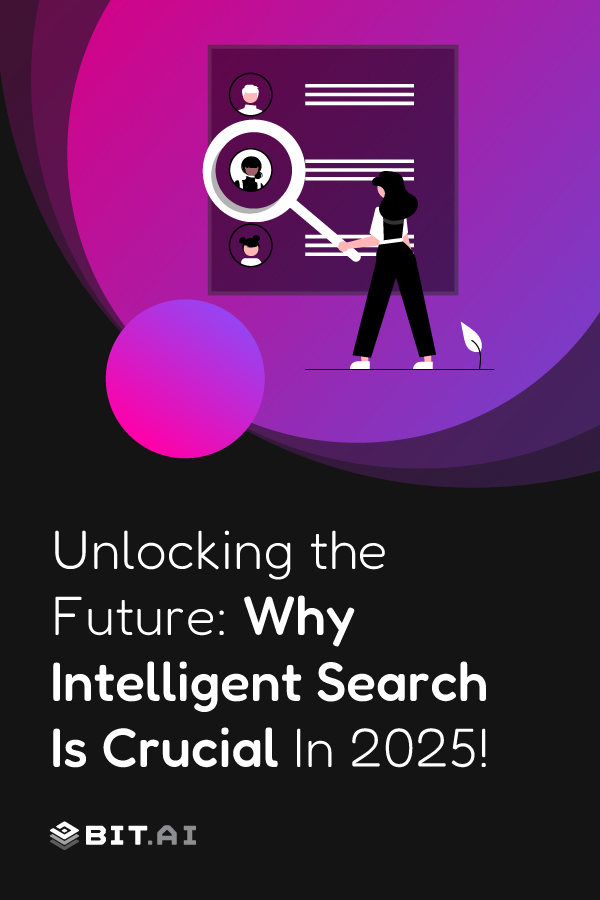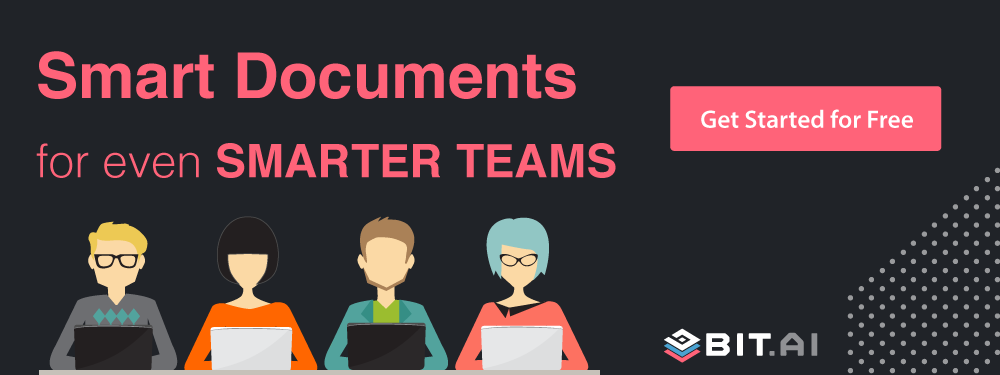Let’s face it, traditional keyword-based search is far from sufficient. In today’s world, you are not only looking for answers, you are looking for instant, personalized, and contextual awareness wherever you are, whether at your work dashboard, help desk, or favorite e-commerce site.
That’s where intelligent search comes in!!!
With the assistance of artificial intelligence, intelligent search uses advanced capabilities that go far beyond keyword matching. Intelligent search understands what you mean, learns your intent, and evolves over time based on your personal engagement. If you’re building digital products, managing internal knowledge, or trying to keep users engaged, this next-gen search isn’t just helpful – it’s becoming essential.
👉 In this article, you’ll learn what intelligent search really is, how it works behind the scenes, why it’s such a game-changer n today’s world, and how you can leverage it to stay ahead of the curve.
The History of Search: Keywords to Context🕵️♂️
Think back to the early days of the internet – if you wanted to find something, you had to guess the exact words to type. Search engines only worked by matching keywords to content, which meant you probably tried several combinations before landing on what you actually needed.
It wasn’t very smart; it was just a giant text-matching game.
But as the web got bigger (so did your expectations), this trial-and-error method started to fall apart. You wanted more relevant results, faster responses, and less frustration. That’s when search started evolving — from basic keyword lookup to systems that understand what you mean, not just what you type..
Let’s take a look at how things have changed so far.
How User Expectations Have Changed!
You don’t just search anymore — you expect your tools to understand you. Whether you’re typing a quick question or looking for a buried doc at work, you want instant, relevant, and tailored results without the hassle.
No more spending time sifting through dozens of tabs just to find a single useful link. Now you expect:
Relevance Right Away: You want results that actually match what you’re working on, whether it’s your job, a school project, or the app you’re using, right?
Understands Your Questions: Instead of just matching random keywords, the search gets what you’re really asking and gives you real answers, not guesswork.
Zero-waste time: You do not want to scan pages. You want summarized and organized results that speak your language.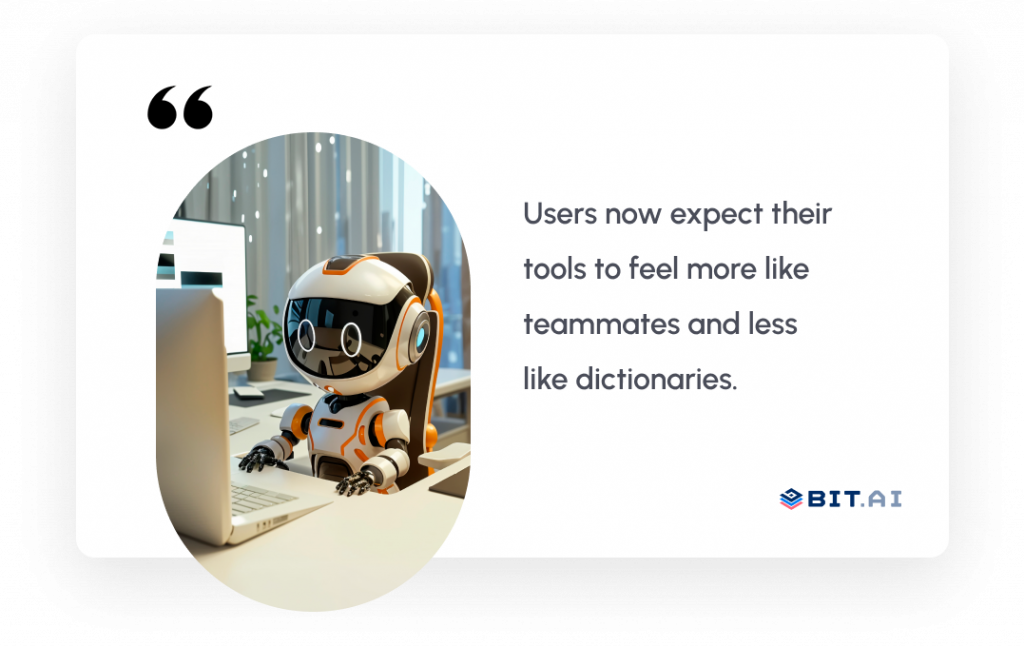 Users now expect their tools to feel more like teammates and less like dictionaries.
Users now expect their tools to feel more like teammates and less like dictionaries.
So here’s the big question…
👉 If expectations have changed this much… what kind of search experience actually meets the moment?
Up next, let’s explore what Intelligent Search really means.
Read more: 25 Best AI Tools For Peak Productivity!
What Is Intelligent Search? (And What Makes it So Smart?)
Intelligent search is an advanced generation search technology that uses artificial intelligence to understand context, user behavior, and intent. Rather than matching keywords literally, it sees meaning, adheres to preferences, and responds dynamically. This is a far cry from those old-fashioned keyword-cluttered systems.
Search engines are now supposed to know their users. Intelligent search meets this expectation by synthesizing AI algorithms, real-time learning, and semantic analysis to deliver more and better answers.
How AI Technology Enables Smarter Searches?
The driving force behind all of this is AI technology. Key players are:
- AI agents who engage with users in real-time.
- AI-enabled search that reactively evolves with every search query.
- AI that has algorithmic training to improve ranking relevance based on the user’s intent.
For your organization, this means developing a system that allows knowledge to be organized and accessible.
👉Moving on, let’s take a look at why Intelligent Search is so important!
5 Benefits of Intelligent Search
Just think, if you had a superpower that would let you discover precisely what you were searching for in an instant. Intelligent search offers this superpower. Instead of aimlessly scrolling and trying multiple keywords or variations of a keyword, you receive accurate, meaningful, and personalized results instantly. So, what makes it a superpower for you?
1. Saves You Time
You will no longer have to expend energy sifting through many pages of results. Intelligent search filters out the noise and provides access to information quickly. That means more of your time will be spent on the task at hand, instead of scrolling and second-guessing.
2. Improves Accuracy
Have you ever searched for something and gotten irrelevant or confusing results? Search powered by artificial intelligence eliminates that problem. Intelligent algorithms can determine the intent of your query and not just the keyword(s), so the first answers you see are the most relevant and of the highest quality. This ultimately instills trust in the results quicker and allows us to take action sooner.
3. Gives You Personalized Results
The more you use intelligent search, the smarter it becomes. Over time, it learns your preferences, your work style, and even the types of content you interact with most. That means the results you see are tailored to you—making your search experience feel less generic and more useful.
4. Handles Complex Queries with Ease
Whether you’re asking long, detailed questions, using technical words, or typing something a little vague, intelligent search has your back. It’s designed to understand context and complexity, so even tricky or unclear queries will lead you to the right content. You don’t have to rephrase over and over to get what you need.
5. Enhances Your Overall Experience
Smart search ultimately makes your workflow easier and more pleasurable. By bridging speed, accuracy, and a personalized approach, it creates an intuitive search experience that lessens your frustration and enhances your productivity. You will see tasks you do every day become simpler, and you will be more satisfied overall.
When you have a tool that truly understands what you’re asking, you not only work faster but also make better decisions.
➡️ Now that you know why intelligent search is such a valuable ally, let’s explore how AI is beneficial for Smart Searches!
The Role of AI in Search Engines
Artificial intelligence has transformed search engines as we knew them. The days of linear, rules-based systems are gone. Now, in today’s time, the most powerful search engines in the world utilize AI technology – from interpreting your questions to delivering customized responses. That has spawned a new generation of AI-powered search engines, ones that not only contain information on board but also understand, learn, and evolve in real-time.
This is how AI is transforming search:
1. Learning and Self-Improving AI Algorithms
Current search sites employ AI algorithms that learn and optimize outcomes continuously from user behavior, clickthrough habits, and previous searches. Such algorithms see patterns and rank dynamically, with each search getting a better result than the last. Over time, this produces ever more accurate, context-driven outcomes for every single user.
2. AI Agents that Personalize Every Touchpoint
The top platforms now utilize AI agents that function very much like digital assistants. They personalize the search experience based on role-based access, location, intent, and even device behavior. These agents help in prediction even before a query is completed, making for a smoother and faster.
3. AI-Driven Search within Internal Systems
AI isn’t just transforming public search engines – it’s also redefining internal knowledge systems. Businesses using Bit.ai’s Internal Wiki Template, Training Manual Template, or Client Onboarding Template can structure their documentation to integrate with AI-powered search tools. This enables employees, clients, or partners to locate the relevant content tailored to their specific needs.
In short, the artificial intelligence of search engines is now an essential component. It’s no longer about showing results – it’s about understanding users and giving them the best possible answer in milliseconds.
Read more: Generative AI: What is it and How to Incorporate it?
The Future of Intelligent Search: What’s Next?
The future of intelligent search is already being written — and it’s more dynamic, predictive, and human than ever. As individuals desire more personalization and virtually instant answers, search systems are departing from static outputs to become authentic AI-driven assistants that can predict needs, not merely respond to them.
These are the major trends in constructing the next generation of search smarts:
1. Predictive and Conversational Searches
The use of artificial intelligence in search engines is continuing to evolve as the norm. Eventually, instead of the user needing to type a full query, systems will predict the questions based on the user’s behavior, habits, and browsing history. Along with voice and chat, AI agents will serve as live search assistants, conversing with users naturally instead of providing raw links.
Read Now: What is Conversational AI? (Components & Benefits)
2. Multimodal Search Capabilities
Text is only part of the picture. Upcoming AI search engines will be able to comprehend pictures, films, voice, and motion. A question can be posed with a screenshot, voice, or document snippet, and the machine will pick it up and answer it accordingly.
3. Enterprise Knowledge Graphs
Companies are putting more and more money into infrastructures that are AI-prepared, including in-house knowledge bases and semantic content repositories. Bit.ai Content Library Template and Knowledge Base Template offer teams a way to ready themselves for the change by organizing their content into modular, structured forms that are optimized for intelligent systems.
As AI becomes stronger, the next few years will blur the line between search engines and assistants, creating a seamless layer of smarts on every digital touchpoint.
Bonus – Meet Bit.ai!
If Intelligent Search is the brain, then Bit.ai is the genius who knows exactly where every answer lives. In today’s world, you don’t just need a place to store files – you need a system smart enough to understand your intent, interpret your questions, and instantly surface the right information, whether that’s inside a company wiki, a help desk, or a sprawling knowledge base.
That’s exactly where Bit.ai’s AI Doc Builder shines. Instead of creating static, one-dimensional documents, Bit.ai helps you build living, intelligent docs that connect knowledge, organize resources, and guide your team to the information they need – without digging or guesswork. Imagine drafting a playbook, report, or dashboard, and having AI automatically suggest structure, pull in relevant links, embed media, and make the entire document searchable.
With Bit.ai, your content isn’t just written – it’s discoverable, contextual, and interactive. You ask, it delivers. That’s intelligent search in action, woven directly into your everyday workflows.
1. Team Collaborative Workspaces
You can create and share documents with your team in real-time. No more version chaos—everyone stays on the same page, editing together seamlessly.
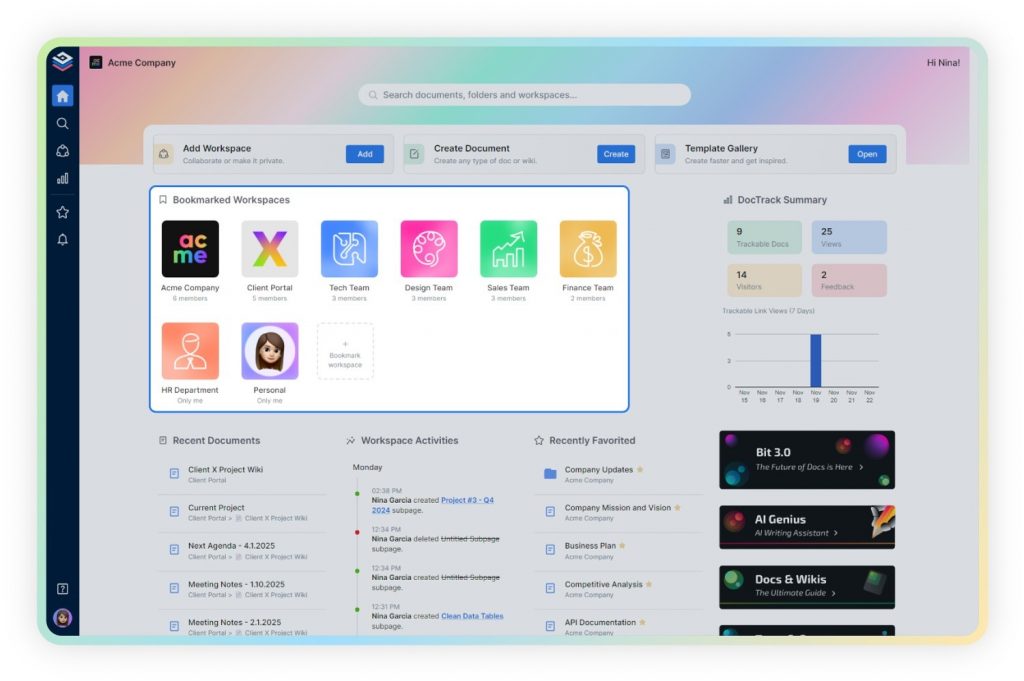
2. Smart Documents
Your documents won’t just be text. You can embed AI-generated content, videos, links, and files—all in one interactive, easy-to-navigate document.
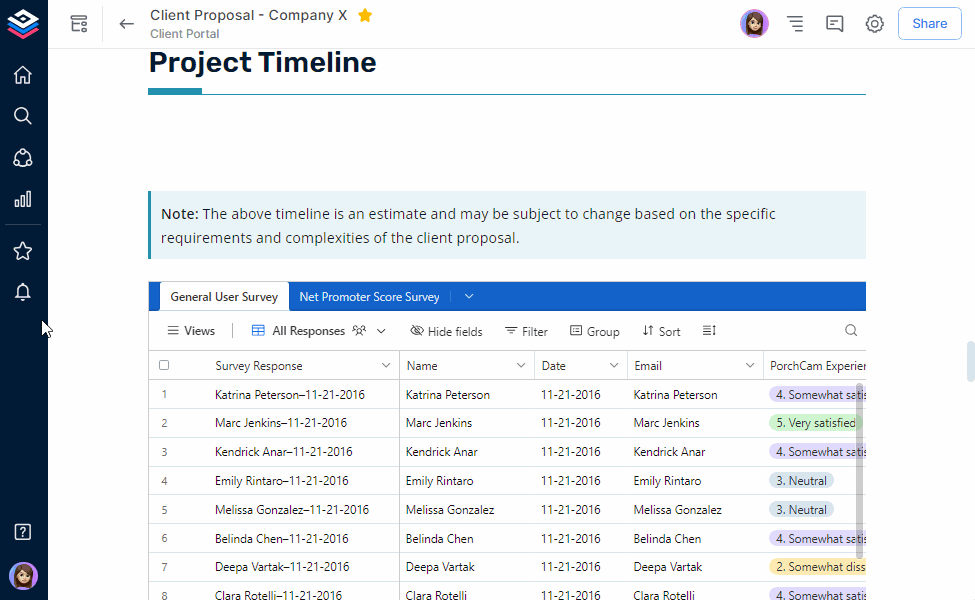
3. Team Collaboration Tools
Assign roles, control permissions, and check version history with ease. You’ll always know who is doing what – no miscommunication, no lost time.
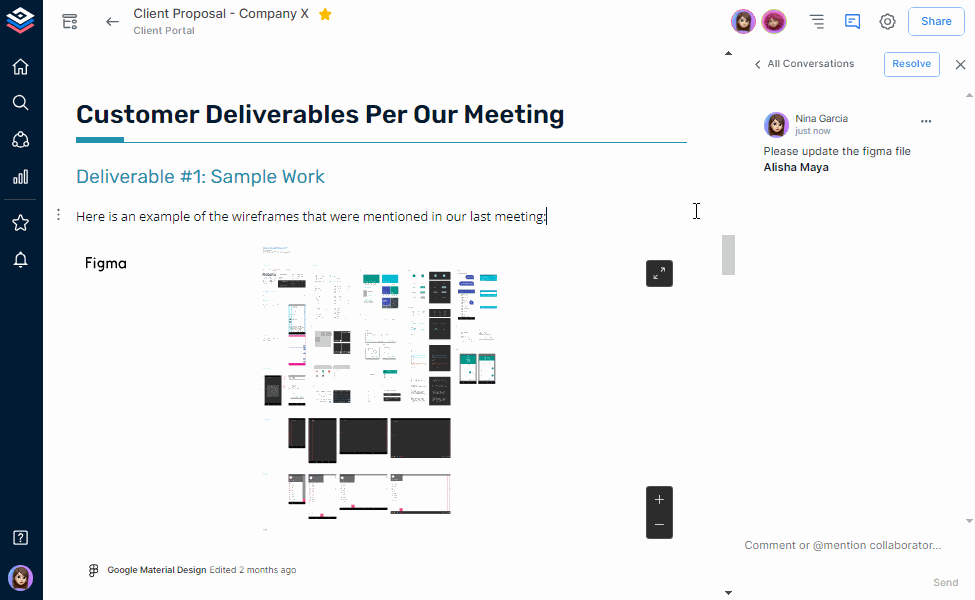
4. Integrations that Work Anywhere
You can connect Bit.ai with Google Drive, OneDrive, and 100+ other apps to ensure your workflow is simple and connected.
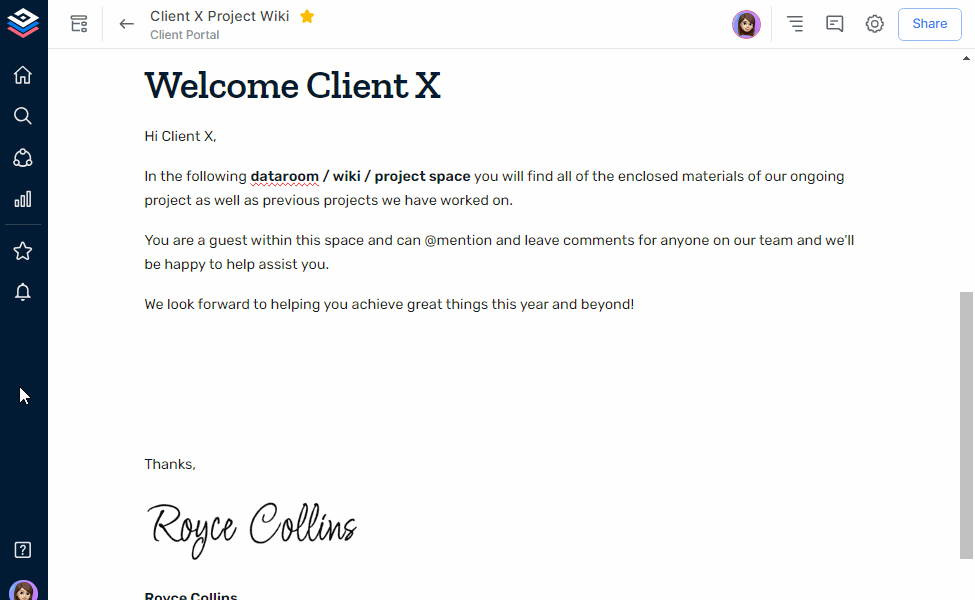
5. AI Genius Writer
Need content fast? The AI Genius Writer helps you draft blogs, reports, emails, and more in seconds—so you can spend less time writing and more time creating impact.
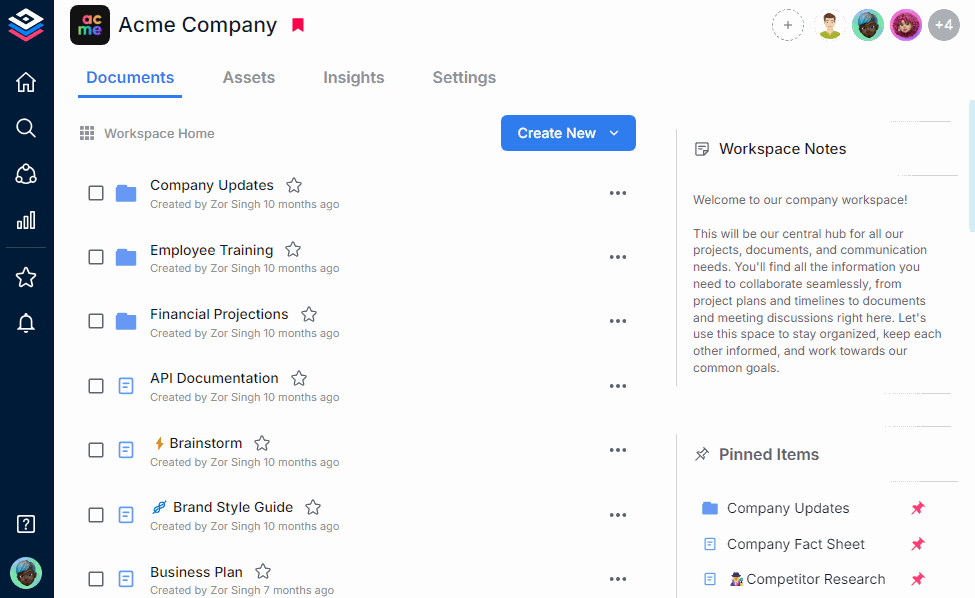
6. AI Doc Builder
Why build documents manually when you can generate full-fledged docs from simple prompts? With AI Doc Builder, you create professional documents in minutes instead of hours.
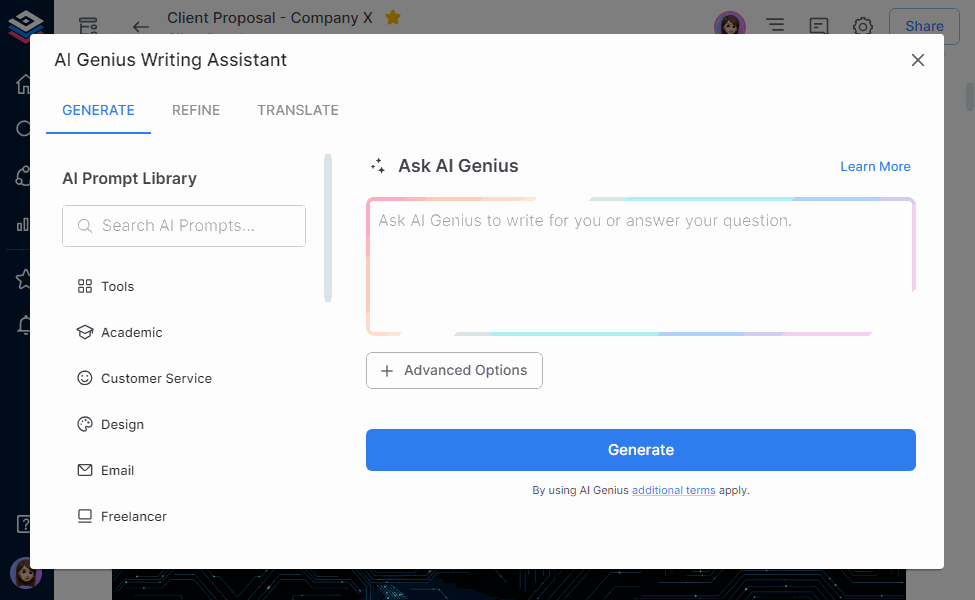
7. Multiple Sharing Methods
Share your documents with a live link, track external user engagement, make it password-protected, add an expiration date, include a lead capture form, embed it on any website or blog, and more.
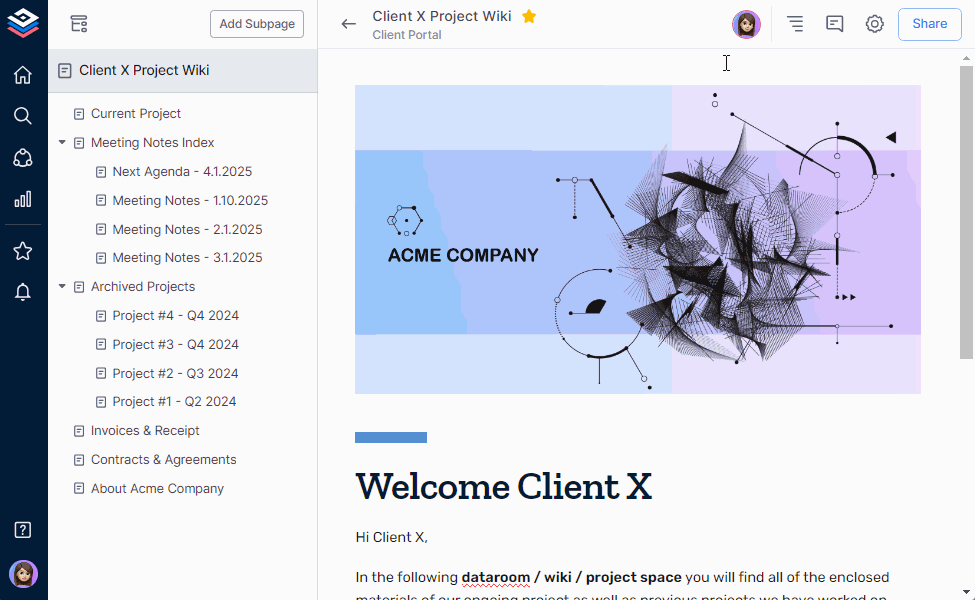
Now that we have the knowledge of various tools and their usefulness, let’s wrap up with a few words.
Wrapping It Up
Soon, intelligent search will no longer be a futuristic concept — it will be a reality. Leveraged to power customer service and productivity for employees, drive conversion, and make knowledge more accessible, its impact cannot be denied. The intersection of AI tech, intelligent algorithms, and human-centered design is creating search systems that are more human, useful, and intuitive.
Organizations must act today to remain competitive. This includes structuring your content repository using structured tools like Bit.ai’s Documentation Templates, using AI-powered search capabilities, and allocating funds for a scalable knowledge management system. The brighter your foundation, the stronger your search.
FAQs
1. What do you mean by intelligent search?
Intelligent search goes beyond keyword searching – it applies AI to read user context, history, and interests, returning the most relevant results.
2. How is intelligent search different from traditional search engines?
Traditional search engines function under the rationale of using some static indexing and keyword rules, compared to intelligent search, which utilizes AI algorithms, NLP, and live learning to provide dynamic, personalized answers.
3. Why is intelligent search so important to businesses?
Customer expectations have evolved, and they now expect prompt and accurate responses to their queries. Intelligent search creates increased engagement, reduces friction, and enables businesses to convert more user experiences into paying customers by providing precisely what they want.
4. How does intelligent search serve to improve the customer experience?
It anticipates needs, identifies natural-language queries, and delivers faster, more targeted results. This fosters trust, loyalty, and overall satisfaction.
Keep Reading & Learning 📚
- Top Tech News Sites for AI, Startups, and Future Trends
- The Best AI Document Summarizers: Simplify Your Content
- How to Leverage AI for Small Business Growth
- The Role of AI in Software Development
[/vc_message]
